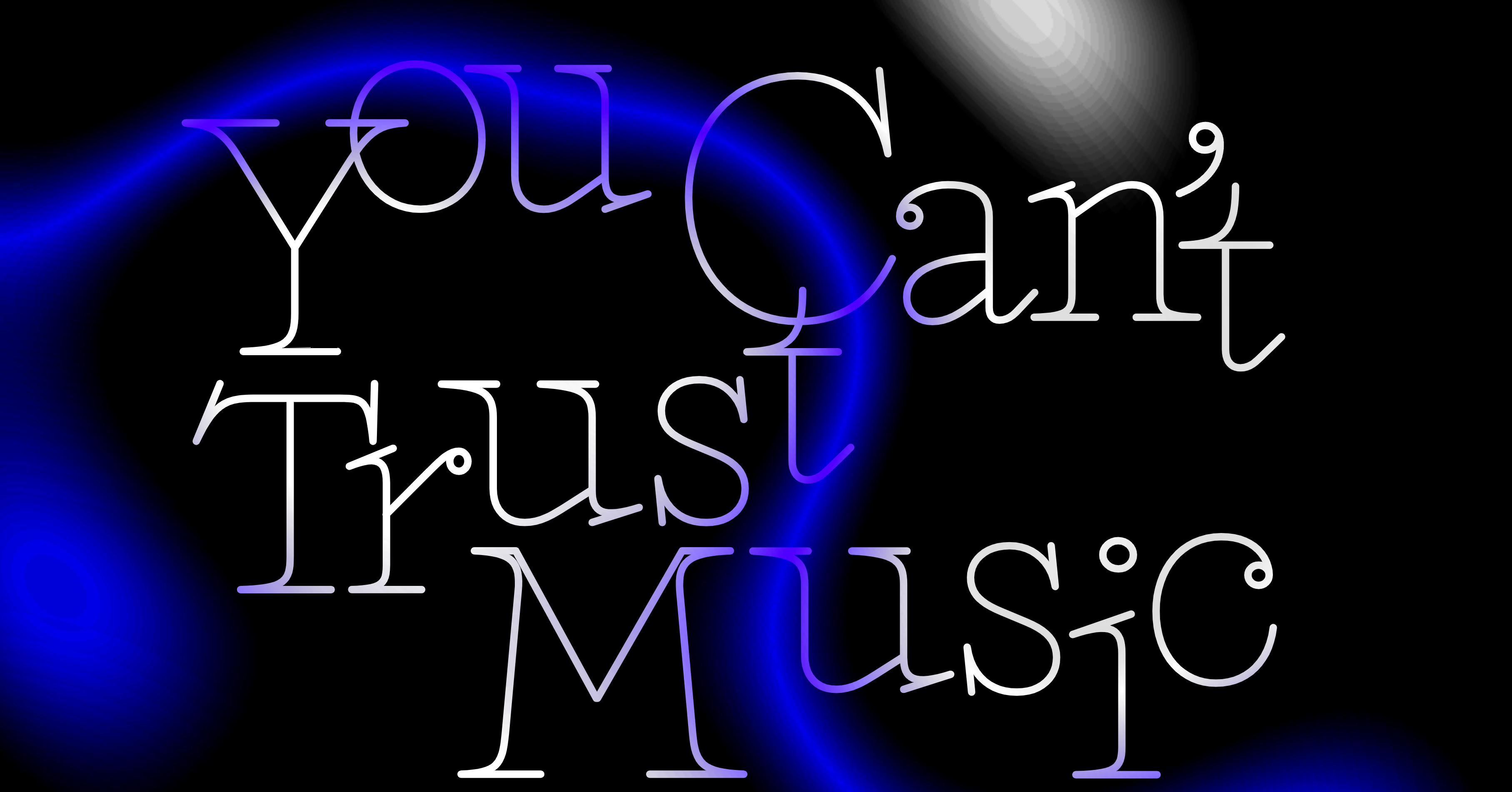
I’m delighted to announce that the e-flux Project You Can’t Trust Music, curated by Xenia Benivolski, is launching today.
A live excerpt of Chimera’s Still Warm Body with an annotated libretto will follow in Spring 2022.
In their influential essay, “Experiments in Civility,” Bill Dietz and Gavin Steingo start by saying: “It would seem that in many circles, music has a bad reputation. You can’t trust music. One minute a piece of music is proclaiming the heights of Western civilization, the next minute the same piece is the sound track to genocide. Music is unfaithful, a slippery character. Or is it the other way around? Is it we who are slippery? Is it who or what we are in music—who or what music lets us become?” [1]
Unlike literature or art, music appears to be nonrepresentational, at least at first. “But music also is a place of sorts,” says musicologist Holly Watkins, “replete with its own metaphorical locations, types of motion, departures, arrivals, and returns.”[2] Songs articulate distance, texture, and intent. They respond to the acoustics of landscapes and social structures; they are amplified in some spaces and dampened in others. The quality, cadence, and rhythm of sounds can document changes in topology through their evolution. By listening to sounds—and the way they have been transcribed, adapted, and memorialized—we can trace otherwise invisible political interventions into landscapes and soundscapes and, in return, understand these interventions as documents, instructions, or scores.
Music is a powerful mnemonic device. When it comes to language as well as place, the human brain uses phonology—how languages organize sound in the brain—to aid in memorization. It is the song’s structure that helps us remember other information about it. In other words, the melody helps us recall the lyrics. But every collective experience is made up of structurally subjective impressions. Working from an assumption that internal and external soundscapes resonate in collective execution, You Can’t Trust Music (YCTM) is a research project connecting sound-based artists, musicians, writers, and thinkers who explore the way that landscape, acoustics and musical thought contribute to the formation of social and political structures. This project was developed by Xenia Benivolski, with significant support from Julieta Aranda, throughout 2020 and 2021, a time when people were confined to their homes and one of the only ways to be transported was through the body’s association of the sonic with the spatial. YCTM is a digital exhibition whose primary medium is sound and music, accompanied by texts that complement, rather than explain.
With works and texts by Ryuichi Sakamoto, Victor Wang, Sachiko Namba,Matt Smith (Prince Nifty), Kurt Newman, Douglas G. Barrett, Stefana Fratila, Abhijan Toto, Pujita Guha, Sung Tieu, Apichatpong Weerasethakul, Ayesha Hameed, Felicia Atkinson, Michael Nardone,Ryan Clarke, Bitsy Knox, Jessika Khazrik, Julian Yi-Zhong Hou, Tessa Laird, Elin Már Øyen Vister, Rachael Rakes, Reem Shadid, Bill Dietz, Gavin Steingo, Xenia Benivolski, Julieta Aranda, and Shock Forest Group (Katya Abazajian, Sheryn Akiki, Daria Kiseleva, Jelger Kroese, Susanna Gonzo, Nicolás Jaar, Paula Dooren, Pantxo Bertin, Pamela Jordan, Erica Moukarzel, Simon Skatka, Sjoerd Smit, Bert Spaan, and Axel Coumans)